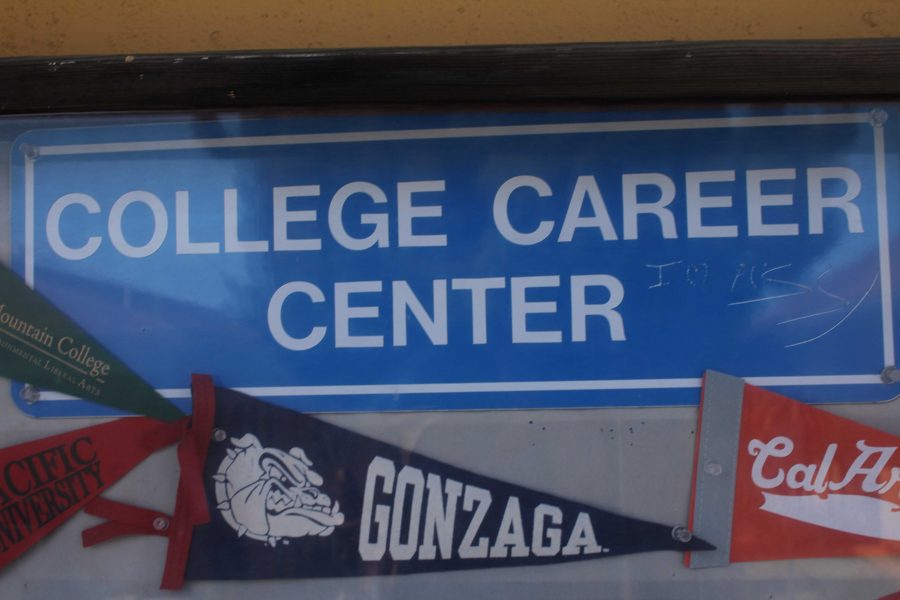We could spend this editorial proving the obvious: that Tam students are drowning in college talk and it’s making us miserable. But despite frequent hand wringing, it only gets worse every year. What we need is a plan to do somthing about it.
The constant pressure to succeed by getting into a “good” school stems from both peers and authorities like teachers, parents, and counselors. Successfully changing Tam’s culture requires a community wide effort to acknowledge our own biases, change the language we use, and redefine our understanding of success itself.
For example, teachers often reinforce unhealthy attitudes towards college admissions unintentionally when they namedrop their alma maters. Some Tam teachers frequently reference the name of the undergraduate school they attended as an attempt to validate their own intelligence and gain credibility as an authority figure. Statements like “trust me, I know what I’m talking about. I went to [Prestigious University]” leave students with the impression that college admissions can and should be viewed as a proxy for intelligence and worth, despite the process’s increasing randomness.
For a student who doesn’t plan on or isn’t able to go to college, these interactions can be especially harmful. They send the signal that following a less “conventional” path is not a valuable choice, despite the fact that for many students, it’s the right one. As a more supportive alternative, teachers can choose not to explicitly name a school when referencing their college days, or can balance out references to their alma mater with accomplishments and experiences unrelated to college.
Similarly, the intensity with which students ask questions like “Where are you going to college?” come April and May excludes students not interested in or able to attend a four year college. A simple shift to asking “What are your plans after high school?” frees students to discuss their plans without shame or a sense of alienation.
To counteract never ending college talk, Tam upperclassmen might even consider asking that students refrain from telling each other where they’re applying, as some other high schools have done. Although drastic, that kind of policy could alleviate much of the toxic competitiveness that surround college admissions. However, it could only work if it was enthusiastically by a borad sawth of the student body.
Fundamentally, changing Tam’s culture around college and “success” in a meaningful way starts with community members, be they students, teachers, or parents, looking within and reevaluating the way that they talk to others about these topics. Do you name drop your alma mater to get respect, or assume that someone is more intelligent after hearing where the got in? Do you sneer at the idea of going to community college because “you’re better than that” or loudly dismiss schools as “safeties?” Perhaps most importantly, do you ask about college before you ask about how fulfilled, engaged, or connected a peer is?
When we focus solely on college as a measure of high school success, we forget to celebrate the wide variety of achievements and skill sets among our student body. Moreover, students often sacrifice their mental and emotional well being in pursuit of the external validation that a college admission can provide. The result is an exclusive and unsupportive school environment that fails to serve all students, regardless of their plans post-graduation, and an overburdened, unhappy student population.
Success doesn’t have one meaning, nor does the question “What are your plans after high school?” have a single right answer. Our challenge is to get used to hearing, and celebrating, the diversity that both invite.


